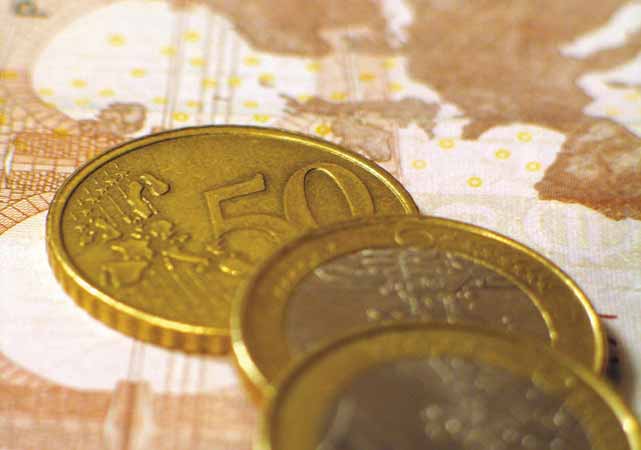Pound to Euro Exchange Rate: GBP Firms despite EUR Tailwinds

The Pound Euro (GBP/EUR) exchange rate rose on Thursday in spite of a surge of strength in Euro (EUR) exchange rates elsewhere. Buoying the Pound (GBP), meanwhile, were hopes that waning inflationary pressures would allow the UK economy to rebound from the brink of recession.
At the time of writing, GBP/EUR is trading at €1.1495, marginally higher than 24 hours previously.
Euro (EUR) Exchange Rates Gain Following Lagarde Speech
Euro exchange rates appeared unfazed on Thursday by the already-forecast decision from the European Central Bank (ECB) to keep interest rates on hold at 4.5%.
For EUR investors, more significance lay with the accompanying press conference and the rhetoric of central bank President Christine Lagarde. While Lagarde was careful not to betray any undue optimism regarding the state of the bloc’s economy, her firm tone and matter-of-fact dialogue appeared to lend confidence to Euro traders, boosting the single currency against even its strongest peers.
As insinuated likewise by the Bank of England (BoE)’s Governor Bailey, Lagarde expects inflation across the Eurozone to fall in the near term, apparently negating the need for further interest rate hikes; yet she is clear in her opinion that rate cuts are not yet warranted.
Following the central bank’s decision announcement, Lagarde said it would be ‘premature to debate rate cuts’, even adding ‘[today’s] policy hold doesn't mean we won't ever hike again.’
EUR was further buoyed by observations that while domestic price pressures remain strong and current risks to economic growth are skewed to the downside, the economy should regain strength over the coming years with an increase in real incomes.
Looking ahead, US Dollar (USD) trading may have some effect upon Euro exchange rates – the ‘Greenback’ was supported as the latest US GDP reading printed above forecasts, recording the biggest expansion since the final quarter of 2021.
Pound (GBP) Exchange Rates' Trading Optimistic despite Retail Weakness
The Pound found support against several peers on Thursday, despite a dismal retail sales indicator from the Confederation of British Industry (CBI). Printing far below expectations at –36, the CBI’s latest release revealed the impact of restrictive living costs on UK spending.
Yet forecasts of waning inflation appeared to counter potential headwinds facing Sterling exchange rates. The latest consumer expectations survey from Citi/YouGov aligns with BoE reports of easing price pressures ahead: the public's expectations for year-ahead inflation eased in September from 4.4% to 4.2%.
According to Citi economist Benjamin Nabarro:
‘For now, [the latest survey] continues to show UK inflation expectations to be relatively well-anchored. We also expect these data to continue to ease in the months ahead as headline inflation falls back.’Households struggling with the cost-of-living crisis will inevitably welcome news of weaker inflation. Moreover, reduced prices increase the feasibility of renewed growth across the UK economy.
Potentially threatening Sterling’s relative strength are expectations of a hold in monetary policy tightening measures from the Bank of England (BoE); a dovish stance may demarcate monetary policy divergence between the UK’s central bank and other major banks such as the Federal Reserve.
Nevertheless, such a move could help to avoid a recession, as in the Eurozone. James Smith, an economist with ING, remarked:
‘They won't want to take any chances and they really don't want to see markets price in rate cuts.’GBP/EUR Forecast: Exchange Rate to Founder on Sparse Domestic Data?
Into today, the GBP/EUR exchange rate could trade erratically given a lack of significant data from both the UK and the Eurozone. The morning’s ECB survey may lend some direction to single currency exchange rates, but subsequently, the Euro is likely to take cues from developments in the US economy.
Given the strong negative correlation between the US Dollar and the Euro, any USD tailwinds could dent the single currency. If monthly core inflation rose marginally according to the latest PCE index, USD may rise – depressing EUR.
Meanwhile, the Pound may trade according to either risk sentiment or external developments. As the conflict in Gaza rages on, the division within the international community could divert investors towards safe-haven assets and away from perceived riskier investments.
